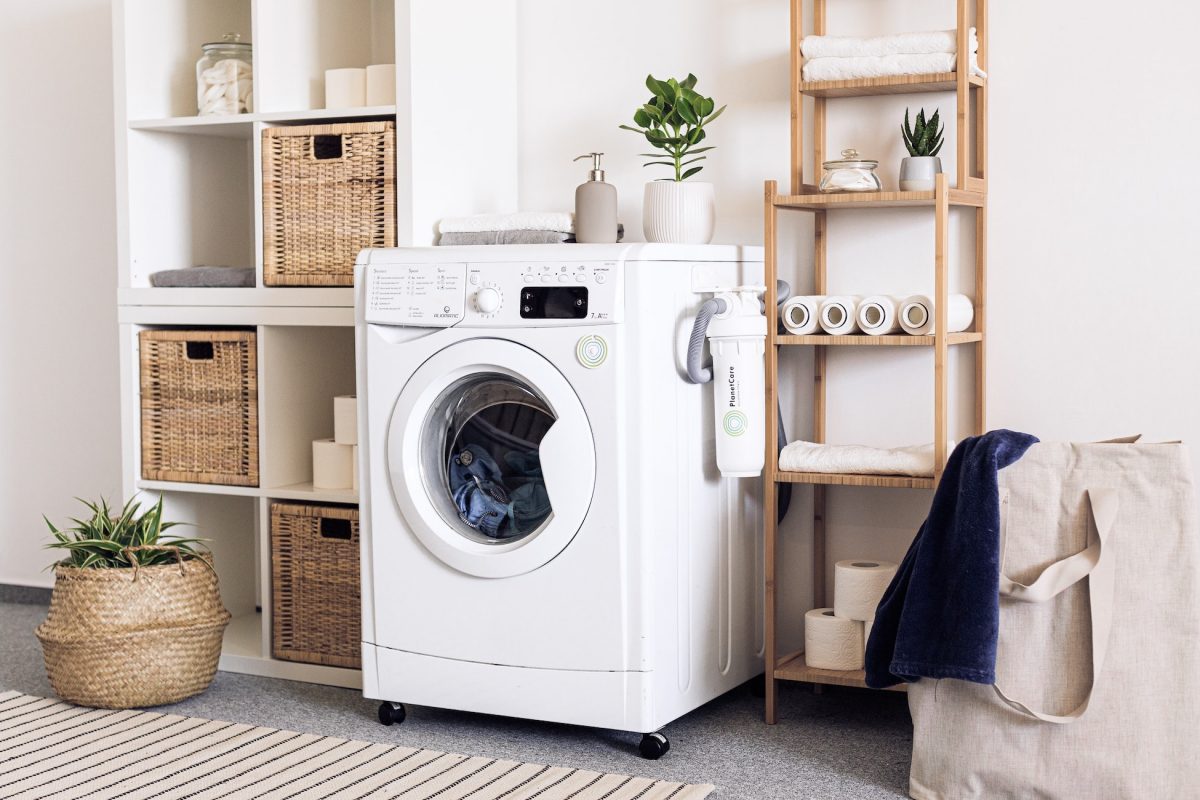Ever been in line at your favorite coffee shop wondering, “Wait a sec—am I about to spend money I have or money I’m borrowing?” Welcome to the wild, wallet-tickling world of debit and credit cards! Whether you’re splurging on avocado toast, saving up for that long-dreamed-of vacation, or just trying to level up your financial game, understanding the difference between these two plastic powerhouses is key. Get comfy, grab your favorite drink (pun intended), and dive into this guide that breaks down debit and credit cards in a way that’s as engaging as your latest binge-worthy series.
What Is the Difference Between Debit and Credit Cards Table of Contents
Decoding Debit Cards: Your Direct Line to Your Cash
Credit Cards Uncovered: Borrowing with Benefits (and Bravado)
The Core Differences: Debit vs. Credit—What Sets Them Apart?
Pros and Cons: Weighing the Benefits and Drawbacks
The Technology Edge: Contactless Payments and Mobile Wallets
Smart Spending: How to Use Debit and Credit Cards Responsibly
Building Credit With a Credit Card: Your Path to Financial Empowerment
The Impact on Your Financial Wellbeing: More Than Just a Plastic Card
Real-Life Scenarios: How Debit and Credit Cards Play Out in Everyday Life
Financial Literacy: The Foundation of Making Informed Card Decisions
Resources and Community Support: Your Next Steps
Future Trends: How the Evolution of Payment Technologies Impacts You
Integrating Financial Management Into Your Everyday Life
Decoding Debit Cards: Your Direct Line to Your Cash
Debit cards are like that reliable friend who tells it like it is, straight out of your bank account. When you swipe your debit card, the money is pulled directly from your checking account, meaning you’re spending what you actually have. No secret loans here—just your hard-earned cash at your fingertips. It’s the perfect tool for budgeting, keeping your bank balance in check, and avoiding the dreaded debt spiral.
Unlike some financial devices that seem to come with endless strings attached, debit cards keep it simple: you have what you have, and you spend it wisely. Plus, the instant gratification of watching your balance drop as you shop can be oddly satisfying if you’re into that sort of thing. Just remember, while it’s great for everyday purchases, it might not be your best friend when it comes to building credit history.
The magic behind debit cards is in their design. With features like PIN protection and instant notifications, they ensure that every transaction is transparent. And in today’s contactless era, many debit cards now come with tap-to-pay technology, making your daily coffee run fast, easy, and hygienic.
Credit Cards Uncovered: Borrowing with Benefits (and Bravado)
Enter credit cards—the daring, sometimes flashy cousin in the wallet family. Unlike debit cards, credit cards let you play with borrowed money. This means you can make a purchase now and pay for it later, but this convenience comes at a cost: interest and the potential for debt if you’re not careful. Think of a credit card as a financial tool that, when used wisely, builds your credit score, offers perks like rewards and travel points, and even provides a safety net in case of emergencies.
Credit cards are designed to give you extra financial flexibility. Whether you’re planning a big-ticket purchase or simply want to enjoy some buyer protection, a credit card can be a handy ally. They often come with benefits like cash-back rewards, extended warranties on purchases, and sometimes even exclusive discounts tailored just for cardholders. Just like that one friend who makes life a bit more glamorous, credit cards have their charm—but always be mindful of the interest rates and fees you might incur if you don’t manage your spending.
One of the most powerful features of credit cards is how they help build your credit history. Every on-time payment boosts your credit score, which can open doors to better interest rates for loans, mortgages, and more. However, this power must be handled with care. Overspending without a repayment plan is a fast track to high-interest debt, so it’s crucial to balance ambition with prudence.
The Core Differences: Debit vs. Credit—What Sets Them Apart?
At first glance, debit and credit cards might look nearly identical—both are plastic cards that slide smoothly out of your wallet. However, their differences run deep, and understanding these can help you master your money management game.
Where Your Money Comes From
The essence of a debit card is that it draws money directly from your bank account. In contrast, a credit card gives you access to a line of credit that you can borrow against, up to a predefined limit. This basic difference lays the groundwork for much of the subsequent contrast: spending power versus borrowing potential.
Building Credit History
With debit cards, your spending doesn’t affect your credit score, which might sound like a relief for some—but it also means you’re missing out on opportunities to build a robust credit history. Credit cards, on the other hand, are a powerful tool in this area. Responsible usage and timely payments on a credit card can significantly boost your credit score, paving the way for better financial opportunities.
Fees, Interest, and Costs
Debit cards generally come with lower fees since they mirror your actual bank account balance and have fewer risk factors for banks. Credit cards often carry higher fees, including annual fees, interest charges on carried balances, and penalties for late payments. The trade-off here is that the benefits—like rewards and consumer protections—can outweigh these costs if you stay on top of your game.
Rewards and Perks
In a world where every swipe counts, credit cards often lead the rewards game. Think cash-back offers, airline miles, and exclusive discounts at your favorite stores. While some debit cards are starting to offer incentives, credit cards generally win when it comes to robust perks.
Ultimately, choosing between a debit card and a credit card depends on your personal financial habits, spending needs, and long-term goals. For day-to-day purchases, the immediacy and simplicity of debit cards might be more appealing, whereas credit cards offer the chance to earn valuable rewards and establish credit history—but only if you manage them wisely.
Pros and Cons: Weighing the Benefits and Drawbacks
Let’s break down the advantages and pitfalls of each card type, so you can choose the ideal companion for your financial journey.
Debit Cards: The Steady Sailor
- Pros:
- Directly linked to your bank account, ensuring you can only spend what you have.
- Lower fees and minimal interest complications.
- Great for budgeting and keeping spending in check.
- Instant notifications and enhanced security measures to protect against fraud.
- Cons:
- Lacks credit-building benefits.
- Fewer rewards and bonuses compared to credit cards.
- Limited financial flexibility in emergencies.
Credit Cards: The Dynamic Dynamo
- Pros:
- Ability to build and improve your credit score with responsible usage.
- Attractive rewards programs, including cash-back, travel points, and more.
- Purchase protections, extended warranties, and fraud liability coverage.
- Increased purchasing power, which can be a lifesaver during emergencies.
- Cons:
- Potential for debt accumulation if not managed properly.
- Interest charges and fees that can add up over time.
- Risk of overspending due to the temptation of “buy now, pay later.”
Ultimately, your choice depends on your financial habits. If strict budgeting and avoiding debt are your priorities, a debit card might be your best bet. For those aiming to build credit and enjoy exclusive perks (while keeping an eye on interest), a credit card could be a smarter choice.
The Technology Edge: Contactless Payments and Mobile Wallets
In today’s digital age, both debit and credit cards have undergone a high-tech makeover. Gone are the days of fumbling with metal coins and paper bills—now, everything is about contactless payments and mobile wallets. With a simple tap or a quick scan, your transaction is complete, all while you enjoy the peace of mind that comes with robust security features.
Many of today’s cards are equipped with NFC (near field communication) technology that supports contactless transactions. Whether you’re tapping your card at a metro station or paying for lunch on your smartphone, learning how these systems work can elevate your financial savvy. These innovations are not just about convenience—they also provide layers of encryption and fraud protection that help keep your data safe while you live your fast-paced, modern lifestyle.
Mobile wallets, like Apple Pay, Google Wallet, and Samsung Pay, take this convenience a step further by allowing you to store your debit and credit card information securely on your smartphone. They also add another layer of security, as many use biometric authentication (think fingerprint or face recognition) before processing a transaction. This means your purchasing power is literally in your hand—smart, secure, and incredibly efficient.
Smart Spending: How to Use Debit and Credit Cards Responsibly
Whether you’re favoring the simplicity of a debit card or enjoying the potential rewards of a credit card, responsible usage is paramount. Here are some practical tips to navigate the sometimes murky waters of card-based spending while maintaining financial wellbeing:
1. Know Your Limits
With debit cards, it’s as simple as keeping an eye on your bank balance. For credit cards, set and stick to a personal spending limit that doesn’t exceed your ability to pay off the balance each month. It’s all about being realistic and preventing that dreaded snowball of interest from starting.
2. Always Pay on Time
For credit card users, punctual payments are the cornerstone of building a strong credit history. Late fees and high interest rates can quickly derail your financial plans. Consider setting up automatic payments or reminders to ensure you never miss a due date.
3. Keep Track of Your Spending
Whether through your bank’s mobile app or a personal budgeting tool, regularly monitoring your transactions can help you stay informed and avoid overspending. Not only does this bolster your financial literacy, but it also helps you identify any unexpected charges right away.
4. Utilize Alerts and Notifications
Most banks and credit card companies offer real-time alerts that notify you of transactions as they happen. These digital nudges keep you up-to-date on your spending habits and can be invaluable for catching fraudulent activity early.
5. Understand Your Card’s Perks and Pitfalls
Take time to read the fine print on your card agreements. Familiarize yourself with interest rates, annual fees, rewards structures, and any hidden fees. Knowledge is power—and in the world of personal finance, it’s your first line of defense against unexpected charges.
By blending these strategies with mindful planning, you can enjoy the benefits of both debit and credit cards without falling into common financial traps.
Building Credit With a Credit Card: Your Path to Financial Empowerment
One of the biggest attractions of credit cards is the opportunity to build a robust credit history. Your credit score is like your financial report card, and a healthy score is often the golden ticket to securing loans, better interest rates, and even favorable rental agreements. Here’s how you can harness your credit card to become financially empowered:
First, use your credit card for regular, manageable purchases—think online subscriptions, groceries, or a night out with friends. Then, repay your balance in full every month. This habit demonstrates to lenders that you’re responsible, reliable, and capable of handling borrowed funds. Over time, this can have a significant positive impact on your credit score.
Remember, even small purchases can add up to big improvements in your credit profile when managed correctly. In the grand scheme of things, your credit card isn’t just a payment tool—it’s a stepping stone to greater financial opportunities.
Moreover, some modern credit cards are designed with features aimed at easing the process of building credit, such as spending tracking tools, personalized spending insights, and even educational resources. Embrace these tools, and soon you'll be navigating the world of credit like a pro!
The Impact on Your Financial Wellbeing: More Than Just a Plastic Card
At its core, how you manage your debit and credit cards is a reflection of your overall financial habits. For millennials and Gen Z alike, financial well-being isn’t just about having money—it’s about achieving balance, making informed choices, and building a future where you’re in control.
Smart usage of these cards can lead to enhanced financial literacy, a stronger credit profile, and fewer money-related worries. All these contribute to a lifestyle where you can pursue your passions—whether that's traveling the world, starting a business, or simply enjoying life without constantly worrying about money.
The ripple effects of good financial management extend beyond your wallet. They improve your mental health, open up opportunities for new investments, and empower you to take bold steps toward financial independence. And isn’t that the kind of future we’re all aiming for?
Real-Life Scenarios: How Debit and Credit Cards Play Out in Everyday Life
Let’s get real for a minute. Imagine two friends—Alex and Jamie—each with different card preferences. Alex swears by a debit card, using it exclusively to stick to a strict monthly budget. Every swipe is a clear statement: “I spend what I have.” Alex never worries about interest rates or hidden fees because every transaction is backed by available cash.
Then there’s Jamie, who uses a credit card strategically. Jamie loves earning rewards, enjoys the perks of travel points, and has built a solid credit score over time. Sure, there are moments of temptation when buying the latest gadget, but Jamie knows that punctual payments are non-negotiable. The result? A vibrant credit history that opens the door to future opportunities like low-interest loans or even a better insurance rate.
Both approaches come with their own lessons and reflect the diverse ways people manage money in today's fast-paced world. The takeaway? There’s no one-size-fits-all answer—it's all about what aligns with your personal financial goals and lifestyle.
Financial Literacy: The Foundation of Making Informed Card Decisions
In an era dominated by instant gratification and digital transactions, financial literacy is more important than ever. Understanding the nitty-gritty details of debit and credit cards empowers you to make decisions that align with your long-term goals. Whether you're navigating the world of student loans, saving for a dream home, or simply trying to grasp the basics of budgeting, the knowledge you acquire today lays the groundwork for tomorrow's success.
A key aspect of financial literacy in this context is knowing how to use each card type to its fullest potential. For example, the habit of checking your bank statement regularly is invaluable for debit card users, keeping you aware of your spending patterns and preventing any overspending. On the flip side, responsibly managing a credit card not only enhances your credit score but also teaches you the value of timely repayments and disciplined financial behavior.
Numerous online resources, apps, and financial blogs out there are dedicated to boosting your financial literacy and helping you master the art of money management. So, if there’s one takeaway here, it’s that knowledge truly is power—especially when it comes to crafting a secure financial future.
Resources and Community Support: Your Next Steps
If you’re feeling a little overwhelmed by the details of debit and credit cards, don’t worry—help is just a click away. There’s a vibrant community of financial experts, blogs, podcasts, and apps dedicated to simplifying personal finance for millennials and Gen Z alike.
Consider joining an online forum or social media group where savvy spenders swap tips on budgeting, card benefits, and credit score strategies. Many financial institutions also offer free webinars and workshops that can provide deeper insights into managing your finances. Whether you’re looking for step-by-step guides, interactive budgeting tools, or just some reassuring advice from others in the same boat, these resources can help you feel more confident and informed as you navigate your financial journey.
As you explore, remember: every question you ask and every resource you tap into is a building block towards a brighter, more empowered financial future. Dive in, engage with the community, and take proactive steps toward a life where financial stress doesn’t dictate your day-to-day choices.
Future Trends: How the Evolution of Payment Technologies Impacts You
The financial landscape is in a constant state of evolution—just like your favorite streaming service, updates and innovations come faster than you can say “contactless payment.” With the rapid advancement of digital payment technologies, the way we interact with debit and credit cards is changing.
Imagine a near future where your card might work seamlessly with biometric sensors, or even pair with wearable technology. Enhanced security features, blockchain technology, and even AI-powered financial advice are on the horizon, promising to make transactions not only more secure but also more personalized. As these innovations take hold, staying informed will be key to harnessing their benefits without falling prey to new-age financial pitfalls.
This ever-changing landscape will likely blur the lines between traditional debit and credit functionalities even further, offering hybrid solutions that combine the best of both worlds. For those who are tech-savvy, this means exciting opportunities to further streamline your financial habits while keeping control over your spending.
Integrating Financial Management Into Your Everyday Life
One of the most empowering aspects of understanding debit and credit cards is the control it gives you over your financial destiny. Rather than being at the mercy of mysterious fees or fluctuating interest rates, you’re equipped with the knowledge to make informed decisions on every purchase. This newfound confidence can transform everyday interactions—from grocery shopping to planning that dream vacation.
Start by setting clear financial goals, be they small savings for a weekend getaway or long-term plans for homeownership. Use budgeting apps, monitor your credit score, and educate yourself continuously on the latest trends in personal finance. Incorporate simple habits like reviewing monthly statements, setting spending alerts, and even challenging yourself to no-spend days. These small steps, over time, build into a robust financial strategy that keeps you in control.
Remember, personal finance isn’t just about dollars and cents—it’s about creating a lifestyle that supports your values, passions, and dreams. With the practical knowledge of how debit and credit cards work, you’re empowered to craft a future where every financial decision is a step toward a more secure, vibrant, and balanced life.
Frequently Asked Questions About Debit and Credit Cards
We know you’ve got questions swirling in your mind—after all, navigating the maze of modern finance can feel daunting. Here are some of the most common inquiries about debit and credit cards, answered in a straightforward, no-nonsense manner.
1. What is the key difference between a debit card and a credit card?
A debit card withdraws money directly from your bank account, ensuring you only spend what you have, while a credit card allows you to borrow money up to a certain limit and build credit through timely payments.
2. Can using a credit card help improve my credit score?
Yes, using a credit card responsibly—by making on-time payments and keeping your balance low—can significantly boost your credit score over time.
3. What should I do if I overspend on my credit card?
If you find yourself overspending, immediately contact your credit card provider, devise a repayment plan, and consider setting up alerts or budgeting tools to keep your finances on track.
4. Are there any rewards for using a debit card?
While some debit cards offer basic rewards or cashback programs, credit cards generally come with richer rewards options like travel points, higher cashback percentages, and exclusive discounts.
5. How secure are debit and credit cards?
Both types of cards are equipped with advanced security features like encryption, PIN codes, and real-time fraud alerts. However, it’s always important to monitor your transactions and report any suspicious activity promptly.
6. Is it smart to have both a debit and a credit card?
Absolutely! Using a debit card for daily budgeting and a credit card for building credit and earning rewards can offer you the best of both financial worlds when managed responsibly.
7. What should I consider before applying for a new credit card?
Look at interest rates, annual fees, rewards programs, and compatibility with your spending habits. It’s wise to compare offers, read the fine print, and assess your financial goals before committing.
8. Can debit cards be used for online shopping?
Yes, debit cards can be used for online purchases, but ensure you have sufficient funds in your account and consider using additional security measures such as virtual card numbers for safer transactions.
Armed with these answers, you’re well on your way to mastering the art of financial management in a world where every swipe matters.
Your Journey to Financial Confidence Starts Now
Understanding the difference between debit and credit cards isn’t just about learning financial jargon—it’s about gaining the power to make smarter decisions every day. Whether you’re carefully tracking your spendings with a debit card or earning rewards with a credit card, each transaction is a step toward financial empowerment.
Embrace the journey of mastering your money, and remember that every swipe is a chance to learn, grow, and invest in your future. With the right knowledge in hand, you can navigate the sometimes perplexing world of personal finance with confidence and flair.
Now that you’re equipped with the know-how to leverage both debit and credit cards to suit your unique needs, it’s time to take action. Dive into your financial ecosystem with wisdom, caution, and a dash of daring. Your wallet—and your future self—will thank you.
Whether you’re hitting the city streets, booking your next getaway, or simply planning for a rainy day, let your financial decisions be as bold and empowered as you are. Here’s to smart spending, healthy habits, and a life where your money truly works for you!













